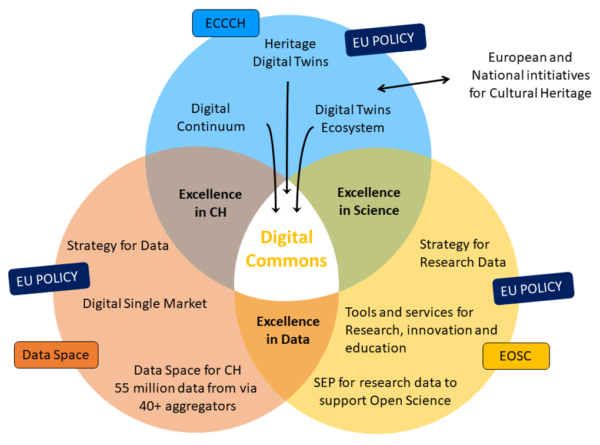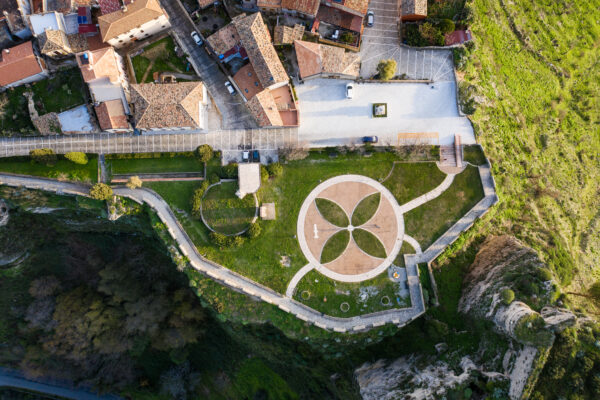2022 - 2025 - ECHOES Project
ECHOES is a €24 million Horizon Europe Project (2024-2029). It's mission is to set up the European Collaborative Cloud for Cultural Heritage (ECCCH), a shared platform designed to facilitate collaboration among heritage professionals and researchers, providing them access to data, scientific resources, training, and advenced digital tools tailored to suit their needs. The ECCCH initiative will consist of some 20 (2-5)€ million European Projects that will do their part to ECCCH in a coordinate way. Part of this coordination will be taken in charge by ECHOES. There are 51 partners involved in ECHOES from 15 countries, including 15 umbrella organizations, for instance museum associations, and these umbrella organizations represent more than 1 000 actual organizations, representing the very vast variety of disciplines involved in the cultural heritage field. ECHOES is led by CNRS, together with FSP and CNR. Its leader is Xavier Rodier, director of MSH Val de Loire. Béatrice Markhoff (UMR CITERES LAT) is the PI for the University of Tours' contributions to ECHOES. BdTln's contributions to ECHOES consist in devising machine learning solutions to support knowledge graphs discovery, exploration and exploitation.
The Cultural Heritage Cloud (ECCCH) is a shared platform designed to provide heritage professionals and researchers with access to data, scientific resources, training, and advanced digital tools tailored to suit their needs. This platform is developed by ECHOES (European Cloud for Heritage OpEn Science), a project funded by the European Commission and UK Research and Innovation (UKRI) that brings together fragmented communities of the Cultural Heritage field into a new community around the Digital Commons.


ECHOES’ main strength is its consortium, which is extremely well placed to represent the wider community, as it includes 15 umbrella organizations representing more than 1000 organisations in Europe, and a variety of disciplines. Ultimately, the project will establish a pan-European network of key stakeholders from CH institutions, including a robust scientific and professional network and will be open to the cooperative efforts of a wide community of users.
